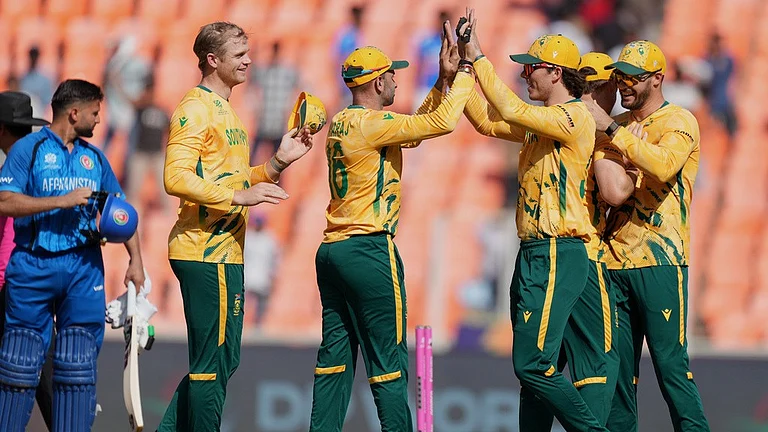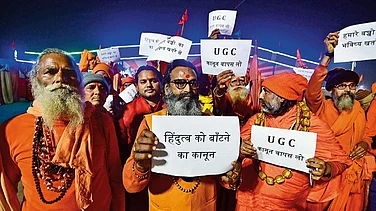Emotions were riding high at the Delhi international airport late at night on Sunday as 17 Indian men returned to homeland after six harrowing months of being held in captivity by a mafia in Libya.
The group of 17 men who had gone to the African country for work were recently liberated from Tripoli Jail. They were duped by travel agents who had lured them with false promises of employment.
Family members and relatives waiting at the airport were relieved and teary-eyed as they received their loved ones who were extradited from Libya following a rescue operation with the help of an Indian MP, the Ministry of External Affairs (MEA) and the United Nations.
The Indian embassy in Tunis played a key role in the evacuation of the Indians, people familiar with the matter told PTI.
Lured And Trapped
According to a report by The Indian Express, many of the individuals left India between February and April this year. They were given “visas and work permits” through travel agencies and had hopes of landing a job in Italy. Many of their families had to sell their lands to fund their futures.
It was only later that they found out about the “donkey route” — a term used by traffickers to illegally push migrants to reach Western countries. The Indians were being held captive by an armed group in Zwara City in Libya after they were trafficked to that country, unidentified people told PTI.
The Rescue Operation
The case was brought to the attention of the Indian embassy in Tunis on May 26 by the family members of the stranded Indian nationals. The embassy regularly pursued the matter with Libyan authorities throughout May and June, as well as through informal channels.
The rescue operation started on June 13 but Libyan authorities but kept the Indians in their custody, on the grounds that they had illegally entered the country.
A high-level intervention was conducted by the Indian ambassador in Tunis and senior MEA officials from New Delhi. Subsequently, Libyan authorities agreed to release them.
During their stay in Libya, the Indian embassy looked after the needs of the Indians, including providing essential food items, medicines and clothes. Since they did not have passports, emergency certificates were issued for their travel to India.
Tickets for return to India were provided and paid for by the Indian embassy.


























